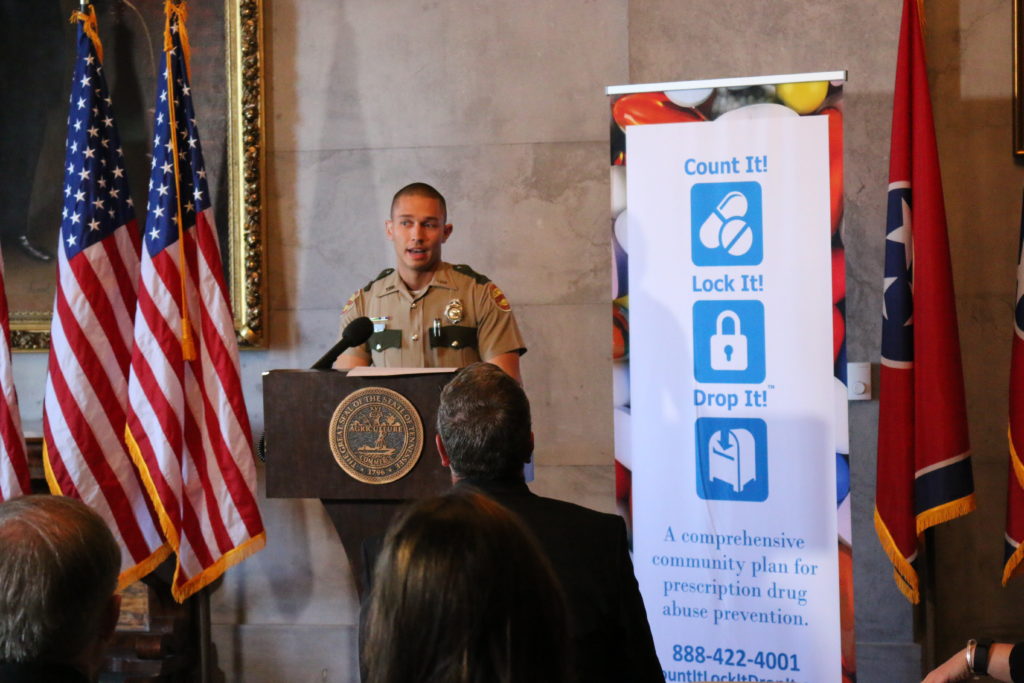
THP Trooper Keith Ogle
Thanks to a $250,000 grant from the BlueCross BlueShield of Tennessee Health Foundation, the Tennessee Highway Patrol and 15 other law enforcement agencies across the state of Tennessee will be receiving lifesaving medicine that could help reduce the number of opioid overdose deaths.
This lifesaving medicine, called naloxone, works by blocking or reversing the effects of opioid medication, such as extreme drowsiness/loss of consciousness or slowed breathing. This drug can be administered in emergency situations.
At a recent media event, Trooper Keith Ogle, a member of the Tennessee Highway Patrol, gave a testimony of witnessing firsthand the powerful reversal effects of naloxone.
One night on patrol, he received a call about a person who was passed out at a gas station of an apparent drug overdose. When he arrived, the person’s lips were blue and they weren’t breathing. Ogle administered naloxone and the person quickly regained consciousness and started breathing.
“The impact of naloxone is remarkable in an overdose situation,” said Chris Jones, training specialist with the University of Tennessee Law Enforcement Innovation Center. “Within seconds of administering it, people are breathing again – they are often up and walking around by the time emergency medical professionals arrive. Naloxone helps law enforcement officers save lives.”
These kits are changing the game for law enforcement, and the Tennessee Highway Patrol is welcoming the resources.
“Our officers are trained and ready to use these kits,” said Col. Tracy Trott of the Tennessee Highway Patrol. “These assets will make a significant difference for our first responders across the state.”

Leave a Reply